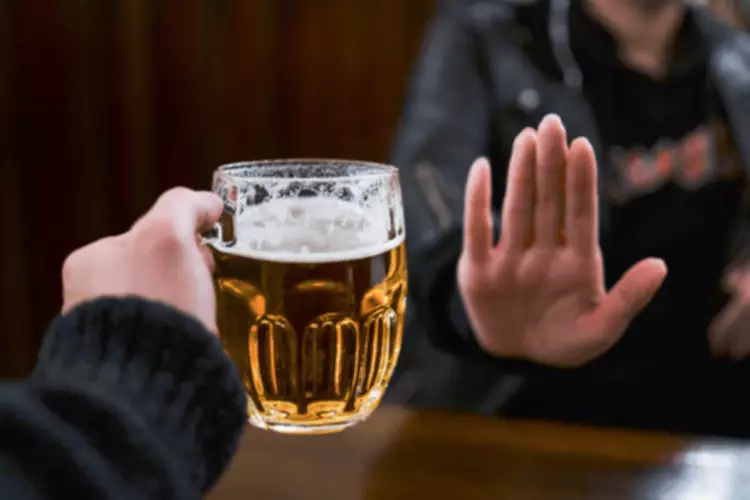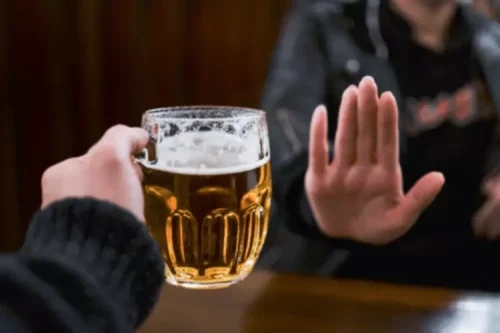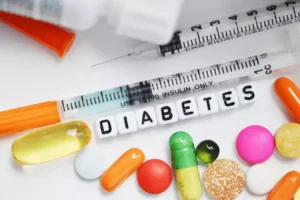Alcohol withdrawal syndrome: mechanisms, manifestations, and management

We will also talk about why it’s important to recognize them and get prompt treatment. Behavioral treatment programs are helpful for people who want to quit drinking. These programs involve working with a team of mental health professionals in a group and individual setting. Tap into your social network to help support you through alcohol withdrawal. Find a supportive friend or family member to be with you while you withdraw and support your new non-drinking lifestyle. For people at low risk of complications, an office visit to your primary care provider, along with at-home monitoring and virtual office visits, may suffice.
Alcohol and Cialis: Risks, Side Effects & Treatment

AUDs are common in patients referred to neurological departments, admitted for coma, epileptic seizures, dementia, polyneuropathy, and gait disturbances. Healthcare providers typically prescribe short-term medications to relieve the symptoms of mild to moderate alcohol withdrawal. Preventing alcohol-induced seizures is crucial for managing alcohol withdrawal and ensuring the safety of individuals with a history of excessive alcohol use. Key strategies for prevention include moderation in alcohol consumption and regular medical check-ups. In addition to therapy and counseling, medical supervision during detoxification is recommended to safely manage withdrawal symptoms. Medications may also be prescribed to alleviate cravings and reduce seizure risk.
Role of Medical Supervision:

In almost all cases, seizures occurred within 12 hours of stopping alcohol consumption. Consuming alcohol seems to aggravate seizures in people with epilepsy and may lead to increased seizure frequency. Doctors often warn people who have epilepsy to avoid alcohol or to only drink in moderation. It’s hard to pinpoint an exact number for each person because everyone’s different. Some have genetic conditions that mean it’s very easy for them to experience intoxication from alcohol. Others may be more susceptible to intoxication and DTs because of medications they take, health conditions and other factors.
- In early stages, symptoms usually are restricted to autonomic presentations, tremor, hyperactivity, insomnia, and headache.
- If you have a more severe chemical dependence on alcohol, you may experience more severe symptoms more quickly.
- It won’t be long after alcohol reaches its half-life that you start to experience withdrawal symptoms.
- Alcohol withdrawal seizures can occur within a few hours or up to72 hoursafter stopping drinking.
Alcohol Withdrawal Timeline – When Should You Watch Out For Seizures?
- There are many resources available to help, including peer support groups, counseling, therapy, and inpatient rehabilitation.
- These are uncomfortable physical and mental side effects that can be potentially life-threatening.
- This article looks at the connection between alcohol, seizures, and epilepsy, as well as treatment options and support.
- Most people will begin to feel better after the acute detox phase of the first week has passed.
- Delirium tremens is a severe, life-threatening form of withdrawal that can happen when a person with alcohol use disorder suddenly stops drinking.
At Healthgrades, our Editorial Team works hard to develop complete, objective and meaningful health information to help people choose the right doctor, right hospital and right care. Our writers include physicians, pharmacists, and registered nurses with firsthand clinical experience. All condition, treatment and wellness content is medically reviewed by at least one medical professional ensuring the most accurate information possible. You will typically require hospitalization if you experience seizures related to alcohol withdrawal. While in the hospital, a medical team can monitor any other symptoms you may experience, as well as treat your seizures.

Why Does Alcohol Withdrawal Cause Seizures?

Depressants like alcohol can cause your muscles to relax, but withdrawal can cause tremors, muscle tightness, and seizures. Alcohol withdrawal seizures are similar to tonic-clonic seizures, which are often seen with issues like epilepsy. The first may involve a loss of consciousness with increased muscle rigidity.
- A tonic-clonic seizure has a tonic (stiffening) and clonic (rhythmic jerking) phase.
- Acute seizure treatment should follow standard protocol, ie, repeated doses of a benzodiazepine (preferably lorazepam or diazepam) until seizures stop.
- The Clinical Institute Withdrawal Assessment for Alcohol, Revised (CIWA-Ar) is used to identify withdrawal symptoms.
- It’s also important to note that delirium tremens can be life-threatening.
- Case-control studies convincingly demonstrate the association of first seizures to alcohol use in a dose-dependent manner.
- Recognizing the symptoms is crucial for timely intervention and treatment.
They will also typically give you medication to stop a seizure if you are experiencing one. For long-term management, medications such as acamprosate and naltrexone have proven effective in treating AUD and can help reduce or eliminate alcohol use. Gabapentin and topiramate, while not officially approved for this use, can serve as second-line treatments for AUD. Alcohol can provoke seizures by interfering with neurotransmitters in the brain, particularly GABA, which regulates neuronal excitability. Alterations in GABA levels can disrupt brain activity and precipitate seizure events. Our state-specific resource guides offer a comprehensive overview of drug and alcohol addiction treatment options available in your area.

Medications
Previous withdrawal episodes appear to be the most reliable predictor of who is at risk for future withdrawal, with or without seizures. They involve muscle stiffening (tonic phase) and twitching or jerking (clonic phase). Additionally, if a seizure cannot be stopped or multiple seizures occur in rapid succession, it could result in permanent injury or prove fatal. According to the Epilepsy Foundation, seizures by themselves typically are not fatal. However, they may cause people to fall and sustain potentially serious alcohol withdrawal seizure injuries, such as head injuries. Alcohol seizures may share symptoms with seizures that are not linked to alcohol.
These may still be mild, or the existing symptoms might increase in severity. There is no exact timeline for alcohol withdrawal, and individual factors, such as the level of dependence on alcohol, will influence it. Alcohol withdrawal symptoms range from mild but annoying to severe and life-threatening. If your symptoms are more severe, you may need to stay in the hospital.
For people with epilepsy, alcohol may interfere with anti-seizure medications and increase the risk of seizures. Alcohol withdrawal seizures typically develop 6-48 hours after you stop drinking, but they can occur 2-7 days after your last drink. The seizures can develop abruptly without warning, and multiple seizures can occur within a 6- to 8-hour period. The purpose of this blog Is to explain clearly about alcohol withdrawal as well as its connection with seizures.












 Momenti di sosta
Momenti di sosta



